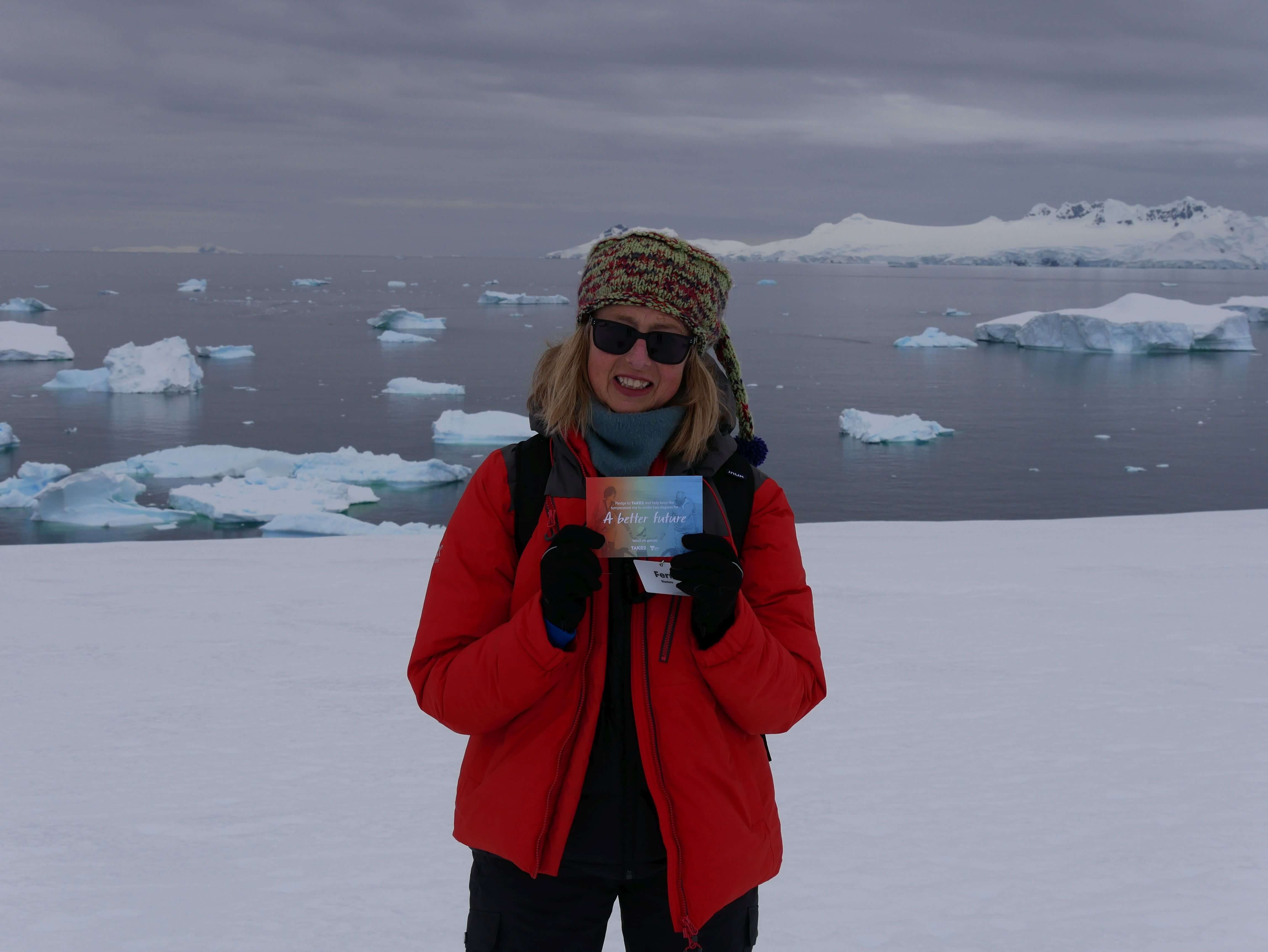
ARI conducts leading research and provides important new knowledge to support environmental decision making in DELWP.
Here, Fern shares some of her experience and aspirations for ARI’s future.
Name
Fern Hames
Qualifications
Bachelor of Science (Hons) - studying Antarctic and Alpine Australian algae. Grad Cert in Rural and Remote Leadership.
Previous roles at ARI
Acting Director, ARI; Manager Science Communication and Collaboration, Victorian Coordinator of the Native Fish Strategy. I started in 1983 as Project Leader, working on the Chinook Salmon Research Project.
Experience
I have meandered through many roles in science, much like the rivers I’ve worked on for years.
I have an early background as a research scientist in Antarctic algae, and then salmon aquaculture (with delicious kitchen benefits and global travel learning from the Norwegians, Japanese, Scots and French).
I spent a decade running an NGO, with remote citizen science expeditions in Australia’s wild deserts and Wet Tropics, and helping develop an ecotourism strategy in Pakistan.
I then moved into environmental education. For another decade, I became “The Fish Lady” – working with communities on river health projects and sharing research stories for Murray-Darling Basin Authority’s Native Fish Strategy, where I learned how powerful empowering people can be.
I have had several roles in emergency management teams, and in connecting fire-affected communities with the recovery of nature, witnessing the powerful two-way recovery loop that can develop for people and nature.
I have led the Victorians Value Nature program for DELWP and the Nature-Led Community Recovery bushfire recovery program.
I am passionate about wild places, and about connecting people with nature and science.
As a volunteer, I helped establish the Jane Goodall Institute Australia; led many local environmental actions and remote expeditions; and volunteered in Tanzania and Myanmar.
I am also passionate about leadership, diversity and inclusion. I was privileged to complete the Australian Rural Leadership Program in 2012, and in 2016 I joined Homeward Bound’s first leadership program for women in STEM, including a journey in Antarctica.
My connection with Homeward Bound continues, as part of the ongoing HB Visibility Leadership team.
I delivered the Visibility program in Homeward Bound 3 (2018-19). That program - the journey to Antarctica, the extraordinary women I worked with - was exhilarating and still inspires me. I am now part of the Homeward Bound 6 leadership team.
I am a Fellow of the Australian Rural Leadership Foundation; Fellow of the Rachel Carson Centre, Munich; team winner of the David Ashton Award for Environmental Science in 2013 (for the Native Fish Strategy) and 2019 (for the Victorian Biodiversity Bushfire Response); Shire of Murrindindi Citizen of the Year 2018; member of the VRAN team that won the United Nations Public Service Award 2019, and I was awarded a Public Service Medal in 2020.
Who is your scientific role model, and why?
Christiana Figueres, former Executive Secretary of the United Nations Framework Convention on Climate Change (UNFCCC) 2010-2016, and part of our HB leadership team in Antarctica in 2019.
A global leader on climate change action, she led negotiations for the Paris Agreement in 2015.
Spending a month on a ship in Antarctica with Christiana was one of the most inspiring adventures of my life. Christiana is inspiring, passionate, impactful, inclusive, smart, funny, vulnerable and wise.
She brings robust science and our diverse humanity together in incredibly powerful ways, and is making a huge difference in influencing nations and individuals towards a better future.
How crucial is the work of ARI right now?
We are at a pivotal moment in history.
The crucial need for evidence-based decision making is so clear.
We are experiencing multiple crises, here and globally, and solid science will help us address these.
ARI’s expertise is in environmental science. We are growing our capability in behaviour change science, and integrating multiple ways of knowing.
ARI is a team of extraordinary people. The knowledge, expertise and dedication run deep. Our staff deliver great work. They think deeply about the questions we need to ask, and they are simply terrific people to know.
What goals have you set for ARI?
I believe deeply in ethical, values-based, inclusive leadership.
I am committed to supporting our team to be, and deliver, their best. ARI will increasingly be known as the “go-to” place for responsive, robust science; for innovative science leadership; and as a highly regarded, healthy, supportive place to work.
Page last updated: 31/08/21